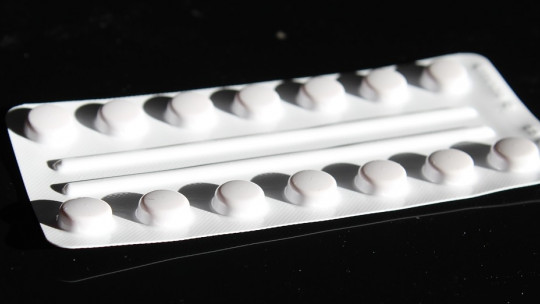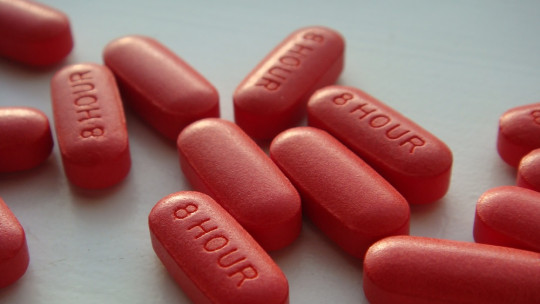
Psychotropic drugs such as escitalopram, olanzapine or diazepam are relatively well known to the population, either by this name or by their different trademarks. These are different drugs that treat various disorders and alterations.
But although these are some of the best known, they are not the only ones: new drugs have continually been developed to combat the symptoms of different mental disorders. One of them, created and used in the treatment of depression, is levomilnacipran
Levomilnacipran: type of substance
Levomilnacipran is a relatively recent antidepressant being synthesized and approved for use in 2013. This substance is the enantiomer of milnacipran (something like the mirror image or reflection in a mirror at the level of molecular organization, being easy to compare it with the differences between our left and right hands, which They have the same shape but different orientation), with their molecules rotated to the left.
This substance is a highly effective antidepressant that It is part of the SNRIs or Specific Serotonin and Norepinephrine Reuptake Inhibitors It combats the typical symptoms of depression such as anhedonia and sad mood, but it is especially characterized by producing a great improvement in motivation and cognitive symptoms.
Thus, it contributes to improving concentration and energy level, hindering the apathy and passivity typical of many subjects who suffer from depressive symptoms. Unlike many other psychotropic drugs, it does not seem to generate relevant alterations with respect to the weight of those who take it.
Mechanism of action
As we mentioned previously, levomilnacipran is a specific serotonin and norepinephrine reuptake inhibitor or SNRI. This implies that its main action at the neuronal level is as an agonist of serotonin and norepinephrine, increasing their levels by preventing these neurotransmitters from being reabsorbed by the neuron that emitted them and increasing the time they remain accessible in the synaptic space.
In addition to this, the mechanism of action of levomilnacipran has a notable peculiarity: unlike most antidepressants, which focus on serotonin and may or may not affect other neurotransmitters in a secondary or lesser way, levomilnacipran has a much greater effect on norepinephrine than on serotonin (approximately in a 2:1 ratio, that is, double). This action is what would generate an improvement in energy, motivation, and ability to concentrate, making difficult the passivity that usually appears in depression.
In what cases is it used?
Levomilnacepran is an antidepressant whose main indication is treatment of major depression, being especially effective in this disorder in reducing emotional and cognitive symptoms. It is especially useful for those cases in which dysfunction and decreased socialization and reluctance and demotivation occur.
At the moment no other uses have been approved, although it is admitted that it may be effective in other problems. For example, research into its effectiveness in cases of social phobia and chronic fatigue, as well as some anxiety disorders, could be useful. In some cases it has been used in subjects with bipolar disorder, improving the situation of subjects in a depressive phase, although there is a risk of exacerbating manic phases (so it is not recommended in these cases or at least more research is required for the rest).
However, although the medication from which it is derived, milnacepran, is used in the treatment of fibromyalgia, levomilnacepran does not have this indication.
Side effects
Although very useful in the treatment of depression, The consumption of levomilnacipran has a number of possible side effects undesirable.
Generally, these side effects They usually include nausea, vomiting, sweating, headaches, tachycardia or irritability. It is also common for urinary problems to appear such as urination difficulties, typical cold symptoms and sometimes (although this is not common) erectile dysfunction or ejaculation difficulties. Hyper or hypotension, visual disturbances or weakness, insomnia, and testicular pain may also occur.
Much more seriously, One of the most relevant secondary symptoms is the possible appearance or increase in suicidal ideation especially in the first moments and if it is the first use of antidepressants.
Hallucinations and seizures may also occur. Finally, although it occurs rarely and is generally due to an interaction of this drug with other antidepressants or medications, one of the most serious risks is the possible appearance of serotonin syndrome.
This syndrome is a serious condition in which fever, seizures, alterations of consciousness that can lead to coma and even death may appear, making it especially important to monitor the dosage of the drug.
Contraindications
Levomilnacipran is a useful medication, but for some people it could pose a risk, which is why it is contraindicated in some cases.
They should be especially careful and consult whether or not those people who have heart disease, hypertension, glaucoma, liver or kidney disease urinary problems such as obstructions, seizures, hemophilia or clotting problems or low sodium levels in the body.
The consumption of levomilnacipran should be avoided if you are allergic to this medication or if you are taking another antidepressant substance, especially in the case of MAOI antidepressants, due to the risk of serotonin syndrome. Likewise, it should not be mixed with alcohol or other drugs. Special caution must also be taken to avoid introducing methylene blue, a dye used in some medical tests and as an antiseptic in surgeries, into the body.
People with a history of suicide attempts should also not take this medication, as it could worsen suicidal ideation. Regarding pregnant and lactating women, this medication is also contraindicated. The use of this drug in patients with other mental disorders, such as bipolar disorder, should be discussed with the doctor.








